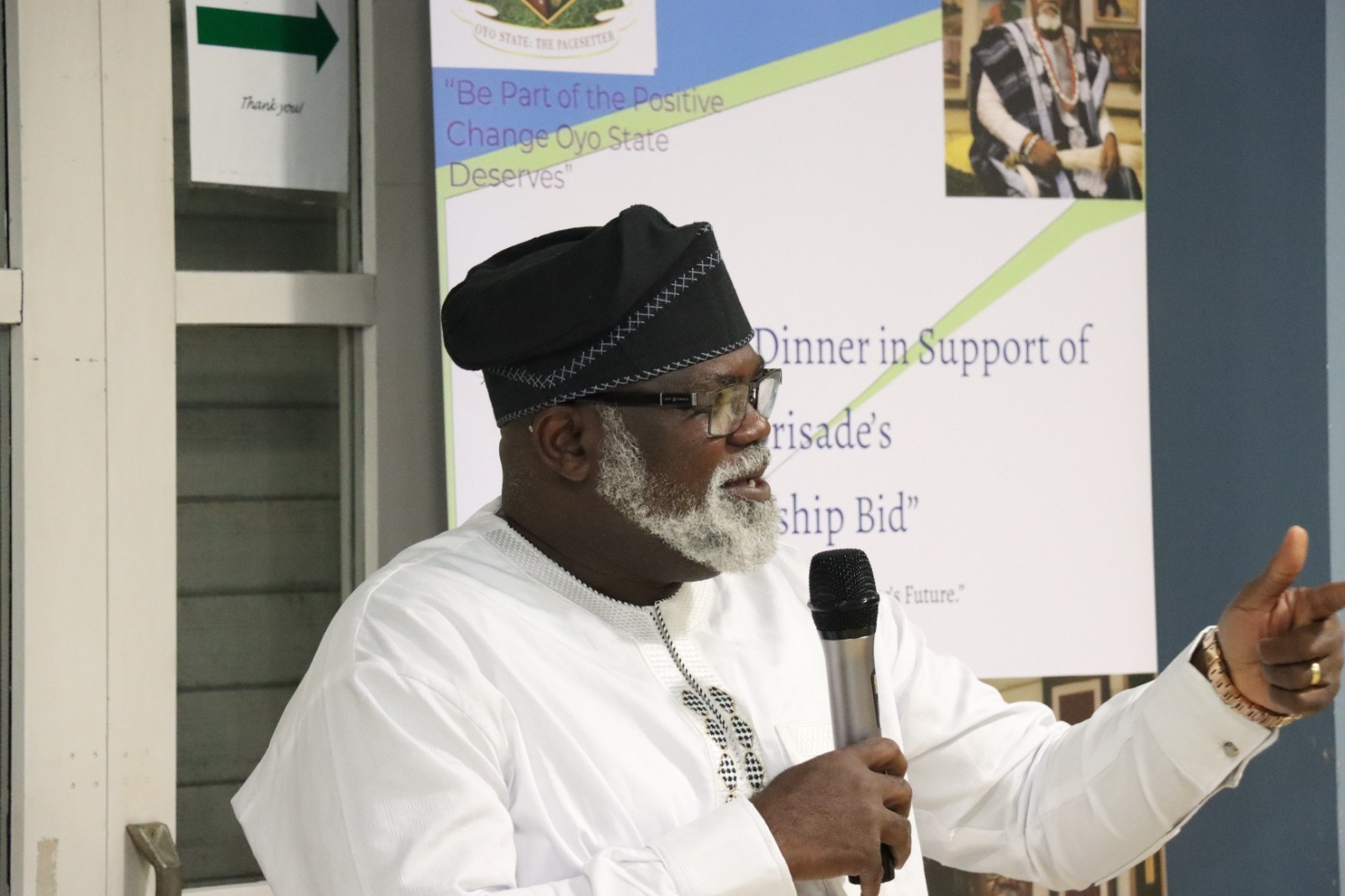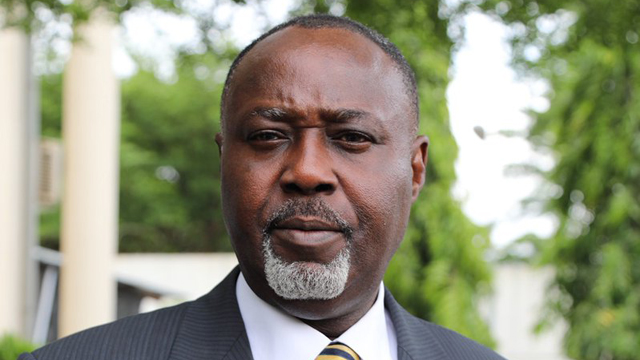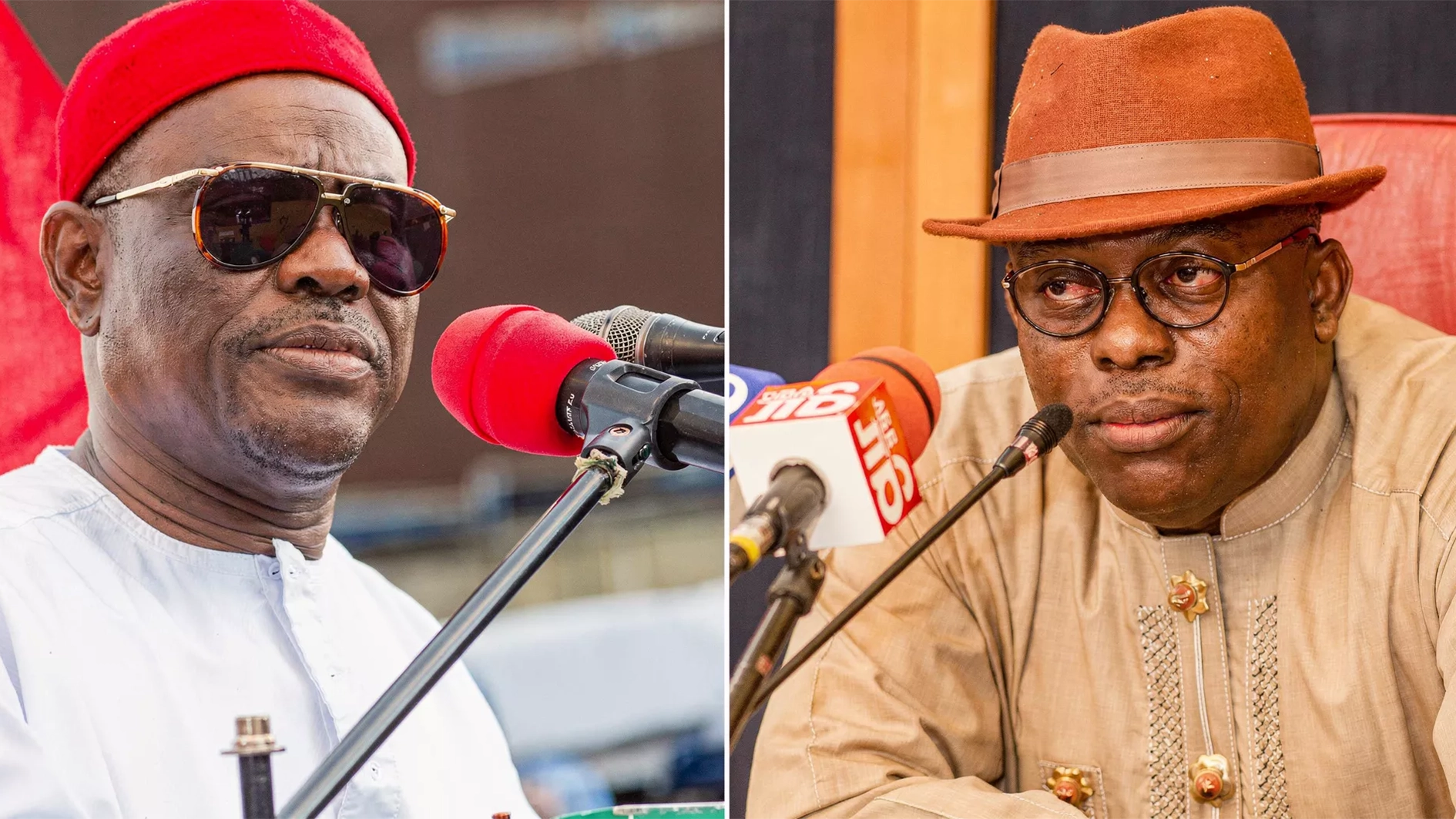Chief Niyi Aborisade is a human rights and British-trained lawyer who has practised in England for decades. In this interview with ROTIMI AGBOLUAJE, Aborisade said Nigeria needs urgent constitutional reforms to prevent future crises, adding that section 162 of the 1999 Constitution and other laws need amendments. He suggested that the Independent National Electoral Commission (INEC) should be empowered to conduct elections for the 774 local governments to guarantee local government autonomy.
Many scholars and public intellectuals have argued that the 1999 constitution is illegitimate and cannot engender progress in the country. What do you think about it?
Well, the opinion about the legitimacy of the constitution may be right, because the constitution was made by the military. It was drawn during the late General Sani Abacha’s regime and delivered by Abdulsalam Abubakar. The military incursion in Nigeria was actually an aberration. The document the military produced now provides a constitution for the civilian people. So, I will agree with those intellectuals that the constitution is illegal. But it can still function, provided the people are willing to let it work.
Which aspect of the Constitution do you think needs amendment?
There are some areas that we need to investigate, especially the obnoxious and ambiguous sections. I am very particular about Abuja’s status. In the last presidential election, there was a contentious issue. There was an issue as to the status of Abuja regarding the 25 per cent threshold in Abuja before a candidate could be declared as winner. That contention has not been satisfactorily resolved. That section of the Constitution needs accurate interpretation and proper clarification. Hence, we need to amend the constitution to give clarification on the status of Abuja during presidential contests.
But the Supreme Court made a pronouncement on that. Is that not enough?
Yes, that means the constitution needs to be amended to clarify the position of the Supreme Court, if we think they are right, because the court can be wrong. Sometimes, the decision of the court may not be the correct interpretation of the constitution, but for the interest of peace, it stands. If the court observes that a certain verdict may cause trouble, it may decide to avoid such trouble. Let me give you a background to buttress this. In 1979, the constitution then stated that for a candidate to be declared as the winner in a presidential election, he must win two-thirds of the states. The constitution said that for a party to win the presidential election, it must have two-thirds of the states of the Federation. Nigeria had 19 states at that time. After the election, a question arose at the Supreme Court on the two-thirds of 19. One can say it is 12 and not 13. They went to meet the then Head of State, Gen. Olusegun Obasanjo. To avoid a crisis, Obasanjo said it should be 12. But everyone knows that it’s not 12 nor 13. It’s between 12 and a half. The National Party of Nigeria (NPN) won 12 states. The constitutional issue was then resolved in favour of the NPN to avoid constitutional crises.
In the same way, we need to amend some aspects of the current constitution to prevent future crises. Clarity is needed where there is ambiguity in the law to avoid confusion. That has to come from the National Assembly.
Aside from this, a constitutional reform is highly needed now for people to come together as was done under the former President Goodluck Jonathan in 2014. It’s unfortunate that the collective submission of the people has not been taken into consideration. It appears that the 1999 Constitution is a bit partial. That’s why I’m of the opinion that the constitution needs to be reviewed. Unfortunately, our lawmakers don’t possess the political will to carry out the much-needed reformation. Some of them are just there to share from the national cake. The desire to amend the Constitution is not their priority. They will only carry out an amendment that favours them, not what Nigeria actually wants.
Mind you, the problem is not only in the constitution, but also in us, the Nigerian people, who are not following the letters of the constitution.
Do you agree with former President Obasanjo, who said that the operators are the problem, and not the constitution?
The constitution may have some problems, but the major problem is with us. The constitution cannot enforce itself; it is the people who will do it.
The issue of state creation is coming back to the polity. Does the country need more states?
The process of state creation is not limited to the National Assembly. Two-thirds majority is needed from both chambers of the National Assembly and state Houses of Assembly. There must be a referendum. So, when you look at that process, it is impossible between now and the next two years. The time is short, while the processes are complex. People have to sit down together to demarcate borders and boundaries. It is very expensive, and the time is not ripe. We need to wait till after the next election.
Besides, the situation of the country now is so critical that we need to focus on bringing comfort and succour to the people, not moot the idea of state creation. The price of fuel is biting, and the exchange rate is frightening. We need to prioritise the needs of Nigerians and how to alleviate their suffering, not the creation of states. America is much larger than Nigeria, almost as big as Africa, but with 50 states. But Nigeria has just 200 million people, but wants more states. I don’t think it is necessary now. Of course, there are cities in some states that are big enough to be states, like Ibadan. However, because of competition from other regions, whenever we bring such an argument, some will claim the size is not sufficient to have a state. More important and pressing is the imperative to make adequate provision for people’s needs.
Are you saying the agitation for state creation from the South East is not genuine?
I’m not saying it’s not genuine. I’m saying that everything will work with time. The time is not ripe right now, because of the situation in Nigeria. The region deserves it, but are we ready for it now? Do we have what it takes to create such states now? How are we going to finance it with the current situation now? Nigeria is in a critical situation. That’s what we should address. And this government can’t complete the process of state creation within the next two years. There are a lot more important issues to focus on, not creating additional states.
Do you think a civilian government can successfully create states?
It’s possible, and the incumbent President can do it if that is part of his ambition. After all, he controls the National Assembly.
Even if he controls the National Assembly, what about the states that must concur to get such states created?
He can get at least most of the states behind him with the look of things, but that is not his priority. He didn’t state that in his campaign promises. State creation is not one of those things he promised to do for Nigerians. We listened to him during the electioneering; he never promised state creation.
Do you subscribe to the idea that local government autonomy is unrealistic?
Local government autonomy is realistic. It is the governors who arrogate power to themselves. The Supreme Court has given a verdict on this. Political relationships are not platonic but governed by laws. The law is clear on the autonomy of local government. We have done it before. What we have now is due to the excessive power of the governors to control money. Now, many governors are just giving out peanuts to the local government chairmen and using them as effective tools to control the people. That is why there are no longer developments in the local government. The council chairmen can’t do anything or embark on any project without taking permission from the governor. The governor will now decide whether to accede to their request or not. The governor would even be the one to bring the contractor to execute the project.
So, I totally disagree with the idea that local government autonomy is not realistic, provided we have the political will. The law is there, and it must be obeyed. When the Supreme Court decided that Tinubu won the 2023 presidential election, we followed it. In many areas, the apex court had intervened, and we followed the decision. Even when the court declared Rotimi Amaechi, who was never on the ballot, as the governor of Rivers State, people complied. I, however, observe that the president himself is playing a game. I think, to some extent, now, there is cooperation between the president and governors so that the governors would have a hold on the councils. In return for that, they will assure him of support to win the next election.
But how do we deal with section 162 of the 1999 Constitution which stipulates a joint account between the state and local governments?
It is like a husband and wife, who can have a joint account and still maintain individual accounts. There is nothing that stops states and local governments from operating a joint account. At the same time, the local government can still have its accounts independently as an autonomous body. However, if the section appears rigid, it should be amended.
Scholars have argued that the existence of local governments is an aberration in a federation. What do you say about that?
I don’t know what they mean, because even in the UK, although the way they practise their government is different from ours, you can see some level of independence of the local government. The local governments can do certain things without demanding anything from the parliament. Of course, the UK practises the parliamentary system of government, where the parliament is supreme.
Those in parliament can’t control the chairmen of local governments. The local governments do their work independently. So, it is possible, local governments can be independent.
General Ibrahim Babangida gave autonomy to local governments during his regime. And again, the moment the Supreme Court ruled on autonomy, it should be obeyed without reservation. So, it is wrong for anybody to say local government autonomy is not practicable; it is all about the desire to observe the rule of law. The Independent National Electoral Commission (INEC) should conduct local government elections, not the states, if truly Nigeria wants local government autonomy.
Will that not be antithetical to the principles of federalism?
In the exclusive legislative list, the federal government controls some agencies, institutions, and bodies, which include the Central Bank of Nigeria, the Military, the Nigeria Police Force, security agencies, INEC, and others. These agencies and institutions carry out their functions for the whole country. Hence, INEC should be allowed to conduct local government elections to ensure local government autonomy.
The flaws experienced in the conduct of local government elections by the state Electoral Commission strengthen my resolve to support the call for the conduct of local government elections by INEC. Across all states, it is the same story. States have failed in conducting council polls. There is no election, but selection. The recent one that happened in Lagos State offers a classical example.






